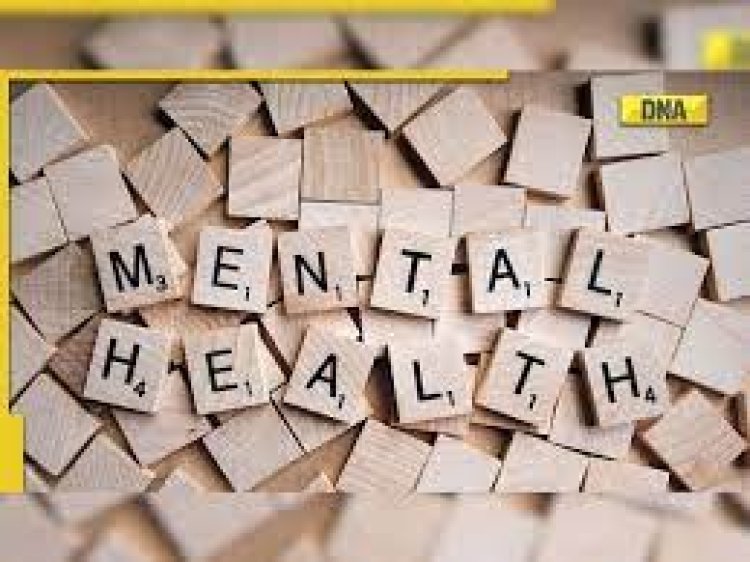10 tips to boost your mental health
Mental health is health. To help with day-to-day stress and challenges, we’re offering 10 tips to boost yours.

To be in good "mental health" means that your mind is in good shape generally. Included in this category are one's self-esteem, the strength of one's relationships, and the maturity with which one handles emotional distress and adversity.
Mental and emotional health issues are universal and, over the course of a lifetime, many of us may encounter them. The Canadian Centre for Mental Health and Addiction reports that every year, one in five people in the country deal with some sort of mental health issue. One in two Canadians will experience mental health issues at some point in their lives, and this rate is even higher by age 40.
These suggestions may help you feel better, cope better, and enjoy life more, but they are not meant to replace the advise and care of trained medical professionals (resources and programs are listed at the end of the article).
1. Make social connection — especially face-to-face — a priority
There is nothing quite like spending quality time in person with other people, especially those you care about and who invigorate you, to relieve tension and raise your mood. After being severely hampered for years by COVID-19, this possibility may now present itself as restrictions are gradually being lifted.
2. Stay active
Keeping active benefits both the body and the mind. Doing some form of physical activity on a regular basis has been shown to have positive effects on a person's mental and emotional well-being.
3. Talk to someone
Speak with a smiling person. One of the best strategies to relax your nervous system and relieve stress is to talk to someone you care about about the things that are stressing you out. And conversely, hearing the experiences and viewpoints of others in a safe and supportive environment helps broaden one's own. If issues persist beyond this, it may be time to consult a professional (for recommendations, see the list of helpful programs and websites at the article's conclusion).
4. Appeal to your senses
Can you relax while listening to an inspiring song? Does fidgeting with a stress ball help you relax and find your center? Why not go for a stroll through the woods and take in the sights and sounds of nature? Every person has a unique sensory processing style, so finding what works best for you requires some trial and error with healthy (rather than toxic) sensory stimuli.
5. Take up a relaxation practice
Breathing exercises, meditation, yoga, and mindfulness practices have all been shown to reduce stress levels.
6. Make leisure and contemplation a priority
We're all guilty of telling ourselves we're "too busy" to relax, but making time for fun is essential to staying well on the inside. Stop what you're doing every once in a while and appreciate the day for what it is, even the little things. Don't risk forgetting them by not writing them down if you can help it! Write down some positive thoughts, and revisit them whenever your spirits need a lift.
7. Eat a brain-healthy diet to support strong mental health
Beans, lentils, and other legumes, fatty fish high in omega-3s, nuts (such as walnuts, almonds, cashews, and peanuts), avocados, dark leafy greens (such as spinach, kale, and Brussels sprouts), and fruit (such as blueberries) may all help improve your mood. There may be some psychological advantages to eating dark chocolate. A licensed dietician is the best person to consult about your diet and nutrition needs.
8. Don't skimp on sleep
It's more significant than most people realize. Sleep is nature's most perfect restorative for the human body and mind. Better sleep can be achieved by avoiding screen time (TV, phone, tablet, computer) in the hours leading up to bedtime. You could try listening to soothing music or reading a book.
9. Find purpose and meaning
Finding meaning in your daily life is important for maintaining a healthy state of mind, but how you do this will vary from person to person. One of the following is worth a shot:
- Engage in work and play that makes you feel useful
- Invest in relationships and spend quality time with people who matter to you
- Volunteer, which can help enrich your life and make you happier
- Find ways to care for others, which can be as rewarding and meaningful as it is challenging
- Think of one good deed or gesture to do each day
10. Get help if you need it
There are many helpful programs and resources out there for you or a loved one who may be struggling.
Support for mental health and substance use is available around the clock, seven days a week, and it's completely free thanks to Wellness Together Canada.
Young Canadians can reach out to Kids Help Phone for free, confidential, around-the-clock English and French phone, text, chat, and other forms of e-mental health support.
Former students of Residential Schools can call the National Indian Residential Schools Crisis Line at any time for emotional assistance and crisis intervention services.
Here to Help is a reliable resource for learning more about mental health and substance abuse.
Children, teenagers, and their families can all get help at Kelty Mental Health Centre.
The BC distress Centre is a charitable organization staffed entirely by volunteers. They aim to teach individuals how to aid themselves and others in times of distress.
The Canadian Mental Health Association (CMHA) is a non-profit organization dedicated to promoting good mental health across the country.
BC211.ca is a resource for locating and learning more about social, health, and government assistance in the province of British Columbia.












